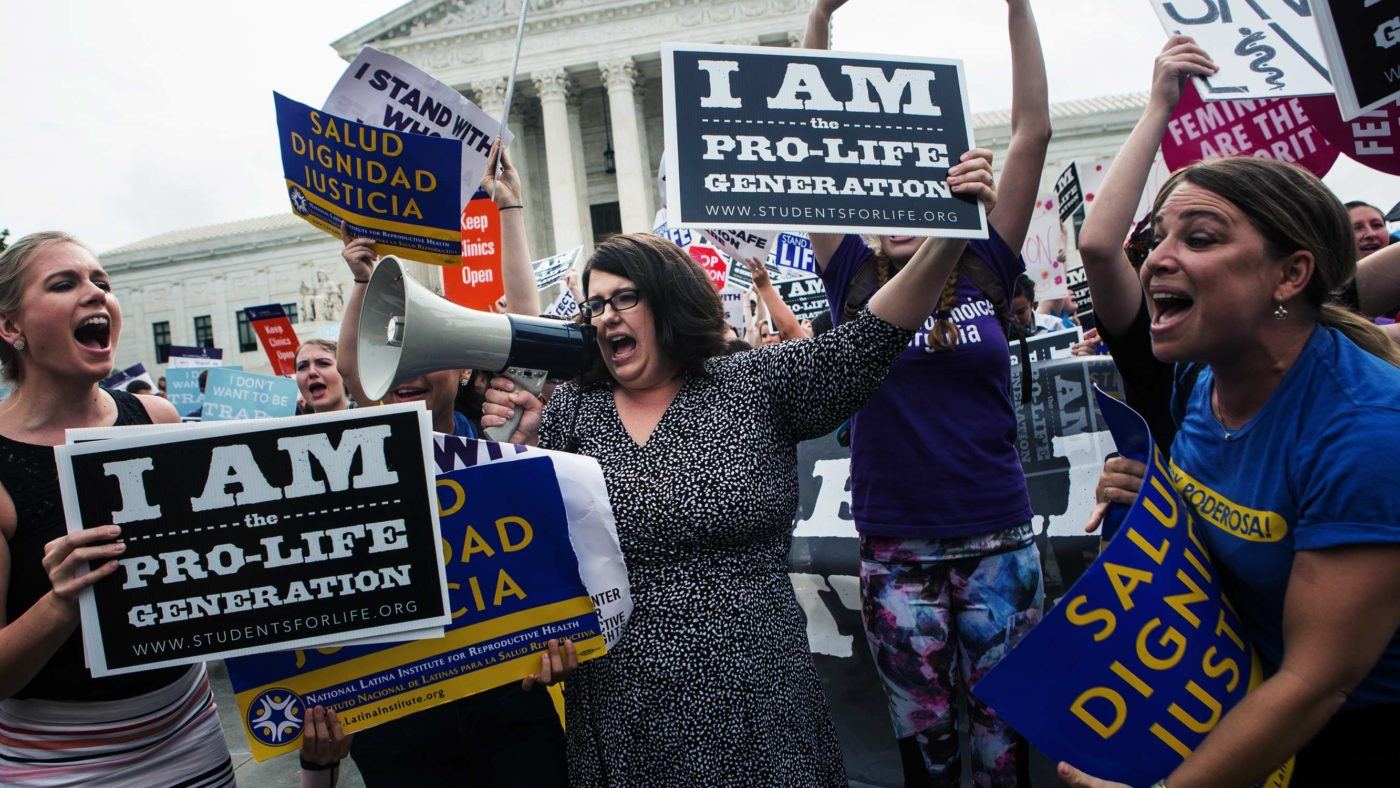Some time ago, I toyed with the idea of writing about one of the most divisive issues in American politics: abortion. Unlike tens of millions of Americans, I do not care passionately about the subject.
What I do care about is social concord and that is, increasingly, in short supply.
Many Americans take their politics very seriously, with family members falling out and friends de-friending one another on Facebook in record numbers recently.
Thankfully there is a time-tested solution to the growing fissures in our society: subsidiarity or devolution of powers to the states.
Prior to 1973, some states permitted abortion, while others banned it. (That, of course, did not prevent residents of conservative states, like Texas, from getting abortions in liberal states, like Massachusetts.)
In Roe v. Wade, the US Supreme Court made abortion legal throughout the United States.
Over four decades later, the law remains deeply divisive, with 46 percent of Americans describing themselves as “pro-life” and 47 per cent as “pro-choice.”
Roe is controversial on both sides.
Pro-abortion activists argue that a woman has a right to her body and can do with it what she wants.
But Roe allows states to regulate abortions, by restricting them to certain stages of pregnancy, procedures and clinics.
Even Ruth Bader Ginsburg, a liberal Supreme Court justice, believes that Roe was wrongly adjudicated, because it subjected women’s reproductive rights to government regulation.
Anti-abortion activists argue that a foetus has a right to life and that killing it is murder. The two perspectives cannot be easily reconciled.
Wouldn’t it be easier, I wondered, if Roe were repealed and replaced by a federal voucher program that would enable pregnant women to travel outside of their states to get abortions?
Conservative states would get to ban abortions, but women from conservative states would still be able to obtain abortions at a relatively low cost through the voucher scheme (ie, the inconvenience of travel and time off work) in liberal states.
Conservatives, who would have to accede to federal funding associated with pregnant women’s travel and accommodation, would not get away scot-free either.
I ran my idea by a colleague who thought it was a non-starter. “The liberals,” he said, “have no need to compromise. The law is on their side.”
Well, times change. With Donald Trump’s victory in the presidential election and Republican maintenance of control in the US Senate, the current vacancy on the Supreme Court will almost certainly be filled by a staunch conservative.
With a number of other justices at an advanced age, the Court is likely to become substantially more conservative in the future. That does not bode well for Roe.
The liberal scepticism of state rights is understandable, if somewhat anachronistic – the states have been guilty of all sorts of abuses, including slavery and Jim Craw legislation.
As such, the federal government in general, and Department of Justice in particular, must continue to ensure that states treat all of their citizens equally – as dictated by the 14th Amendment.
Beyond that, it seems to me, the role of the federal government ought to be curtailed.
Currently, liberals have to put up with many “second best” solutions to the problems that concern them: abortions are legal throughout the United States, but partial-birth abortions are banned at a federal level. Obamacare regulates health coverage at a federal level, but does not provide for a “public health insurance option” that liberals demand.
The Obama Administration has extended Title IX non-discrimination clause at American schools to transgender people – an action that Trump administration will likely reverse. State rights, properly understood, would enable liberals to accomplish their goals at the state level without the need to compromise with conservatives. And the conservatives would get to do the same without being frustrated by liberals.
When liberals talk of diversity, they usually mean diversity of race, gender and sexual orientation. But there are other kinds of diversity, not to mention those of religion, values and traditions.
The fact is, America is an immensely diverse country and laws created for the whole of the US are bound to make some Americans very unhappy.
For the last eight years, Barack Obama’s elite liberalism drove most conservatives mad. Donald Trump’s brand of conservative populism is likely to do the same to the liberals. This is not a healthy state of affairs. More importantly, it is an unnecessary state of affairs.
The founding fathers empowered the states in order to encourage legislative experimentation and limit social discord. Almost quarter of a millennium later, their wisdom endures.


